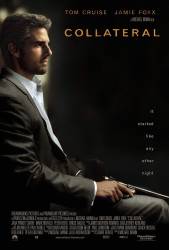
Question: I noticed from the previews that this movie looks very different. What is it? Is it a digital camera that has been used? Or no lighting effects used? The movie really has a "behind the scene" feel.
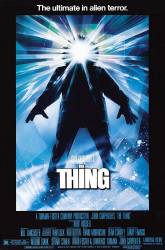
Question: Why did Kurt Russell sound the alarm when the thing was attacking the dogs? He was nowhere near the area and could not see what was going on. Also before he pulled the alarm, the sound he would hear was too faint to think something was wrong.
Answer: Remember that he'd just spent the whole day investigating how something mysterious and horrible destroyed the Norwegian camp, so he's already in a spooked state of mind. Hearing the dogs screaming at night is already unusual on its own, and also reminds him how this whole episode all started with a crazed Norwegian trying to kill a dog. Deep down he knows whatever happened to the Norwegians is now starting at their own camp.
I 100% agree.
Chosen answer: He sensed something was wrong and wanted as much help from the others as possible.
Answer: Having investigated the Norwegian camp, he could have conceived that the use of fire would be helpful. As such, he would need fire extinguishers after combating whatever the thing might be with the flamethrowers. It could have been foresight on his part that by ringing the fire alarms, somebody was more likely to bring fire extinguishers with them, thus allowing better control of the fire.
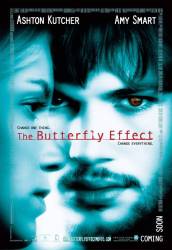
Question: I'm guessing that Evan can travel back to "memories" an infinite amount of times as he has been to the junkyard and the basement memories at least twice, but what I don't get is why, after he saw the horrible repercussions of giving Lenny the shard which led to the psychotic brother's death, why didn't Evan just NOT give Lenny the shard, but still give the bro the moving motivational speech that made him rethink the burning of the dog? Then the dog would be safe and the bro wouldn't be killed traumatically, damaging Kaylee? Why didn't he keep that bit that seemed to work out, but not give Lenny the weapon?
Answer: The point of the movie was that, no matter what he did and how he tried to change things, they always ended up bad. If he went back and did that, something unforseen would have happened to make things terrible. Evan realized that everything bad that happened to them was because of him. He then decided the only safe way to make things right is if he just took himself out of their lives all together. That's the logic the filmmakers went by, if you don't want to accept that, then you will just have to consider it a plot hole.
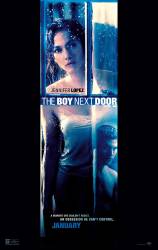
Question: The blonde girl Noah hooks up with - is that Ali, the girl Kevin likes?
Answer: Yes it is.
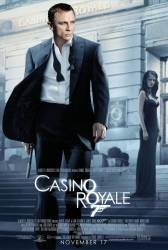
Question: What was the *exact* recipe for Bond's cocktail in the casino?
Answer: From the novel: "Three measures of Gordon's, one of vodka, half a measure of Kina Lillet. Shake it very well until it's ice-cold, then add a large thin slice of lemon peel."
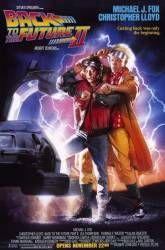
Question: In the alternate 1985, there is an alternate Biff, Lorraine etc. Shouldn't there also be an alternate Marty and Doc?
Answer: Yep, and there is, but they're both elsewhere. Doc's been committed to an asylum somewhere. When Marty first meets the alternate Biff, Biff tells him that he's supposed to be in Switzerland at boarding school - that's where the alternate Marty is.
Wouldn't someone probably see Doc and report that he escaped from the asylum?
Maybe, but no way to be sure, and they're not around long enough for that to be an issue anyway.
Answer: Doc would most likely not have been seen by anyone, as the time he spent in the alternate 1985 was primarily inside the DeLorean, at a boarded-up library, graveyard, and his lab (and all at night too) so most likely not spotted by the public.
Even if someone had seen Doc, it could've been dismissed as someone who looks like him. Even if they did report his escape, someone would either call or go to the asylum and verify Doc was still there.
I also don't think that Doc Brown ever achieved celebrity status prior to his being committed, so how would the average person even recognize him as some obscure scientist who was put away?

Question: If Lanning really had leaped from that distance, wouldn't he be unrecognizable upon impact and not with only a little bit of blood coming from his mouth?
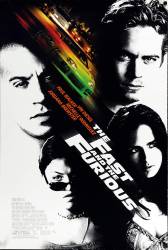
Question: Jessie is using a car design program from the Supra. Does anyone know either what the program is or where to get it?
Chosen answer: It's not a real program, just some CGI. As well as when the pictures of "what it could look like" show up. Those are existing pictures of the car.

Question: In the movie they state the colonel cannot be charged because the crime was committed outside of the United States. All active members of the US military like the colonel are subject to the uniformed military code of justice no matter where the crime was committed, so how did the colonel prevent the military justice system from being able to charge him?
Answer: You are completely correct. This is a clear mistake, the colonel could (and would) most certainly be charged for his crimes.
Though unlike the movie, it's not up the attorney to decide if a military member gets charged, it's up to the judge advocate general.
Actually it's not a mistake. The colonel is not a member on active duty in the service. He's ex military. He's the one running the contractor group that carries out the senator's dirty deeds.
Answer: Receiving retirement pay and being in the IRR confers jurisdiction, even over retired military personnel.
Answer: "The colonel" was not active duty military, BUT as a retiree he is still subject to the UCMJ.
How are retirees subject to the UCMJ?
They're not, generally. Some service members who've served for more than 20 years but less than 30 are or were subject to the UCMJ. There was a recent legal opinion overruling this though. https://www.military.com/daily-news/2019/08/09/new-bombshell-legal-opinion-says-military-retirees-cant-be-court-martialed.html.
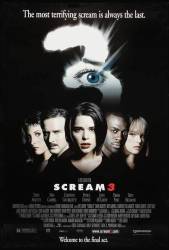
Question: Was Roman just playing dead in the coffin or was it a dummy? Hard to believe that he could be pretending because Gale checks his pulse.
Answer: No it was Roman. There is a technique you can do where if you apply pressure on the correct artery you can stop the pulse. EXTREMELY dangerous though.
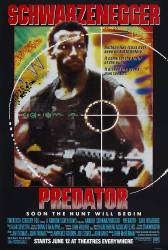
Question: This bugged me for years, when Billy said there is something in the trees to Dutch and in the next shot it shows the trees, is the Predator there, as in visible onscreen?
Chosen answer: Yes. The predator can be seen not in the immediate shot after, but the one a few seconds later as they are seen walking away.
Before or after Ramirez gets hit in the face with the branch?
About 3 seconds before. If you look VERY closely (probably needing to pause the screen around 00:40:55 - about a minute after Billy said, "There's something in the trees"), there appears to be a transparent image of The Predator in the background above the major's (Arnold's) right shoulder. If this is meant to be The Predator, its body is curved around a tree trunk and its arms are extended toward the right of the screen (near Arnold's right ear), camouflaged as green leaves.
The Predator - in a recognizable form - really wasn't visible until another minute later @ 00:41:55 when it was on the ground approaching Hawkins and the woman.
No, it can't. I've just been through this several times and the predator isn't shown on screen at any time during or just after after the conversation.
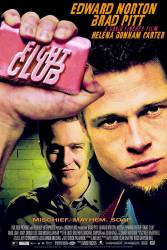
Question: If Meatloaf is shot in the head, how would they get him back to the house and why would they bother? Did the security guard just leave after he shot him?
Answer: Most likely they either went back afterwards or chased the security guard off somehow. It's also possible with all their inside connections that they stole the body from police custody.
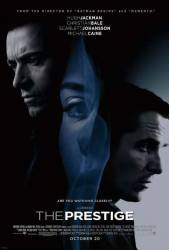
Question: In Angier's final performance Borden watches Angier's duplicate drown in the tank. Does the other Angier still reappear for the audience, and take a bow? They never explain this in the film. If he does take the bow, Borden would never have been accused of murder. If he doesn't take the bow, how does the duplicate know not to do so? The duplicate would have no idea that Borden was below stage.
Answer: Angier always wants to take revenge on Borden as he is the reason behind the death of his wife. He knows that Borden is in the crowd the two times, first time, Olivia suggests Borden to watch the new "Transported Man" trick of Angier, where Borden finds out the trap door in the bottom of the machine, second time, Borden wants to know how Angier flies that distance with in seconds through the trap door. As expected by the Angier in the final play, Borden reaches the back stage where actual Angier is drowning (it is as always actual Angier drowns and the replica of Angier appears at some distance in every performance). So, as per the plan the replica hides to create an impression that Borden intentionally murders Angier. Note: the replica of Angier has the same ability and sense like actual Angier.
It's never stated whether the "real" Angier drowns or takes the bow, but it's implied that it doesn't matter - as the clone is a perfect copy, they are both "Angier." Angier at one point says, referring to toll the trick has taken on him, that each time he did it, even he himself didn't know whether he would be the man in the box or the prestige. Similarly, when Angier asked Tesla which hat of all the duplicates was his, Tesla replied "They are all your hat."
Answer: No, he does not appear to take a bow. The set-up is as follows: Angier invites the audience on stage to observe the machine, but in reality it is so he can watch for Borden trying to work out the trick. When he sees Borden in the audience, he also knows Borden will not learn anything from the stage, and will go backstage. He then clones himself, and the clone is created with the exact knowledge he had at the time of the cloning, including Borden's presence and the trap the original Angier had set. So the "new" Angier hides away the best he can, letting Borden be framed for the murder of the "original" Angier. Had he appeared, not only would it ruin his plan of framing Borden, but it would also reveal how he had done his trick, and he would not allow any of those to happen, no matter what.
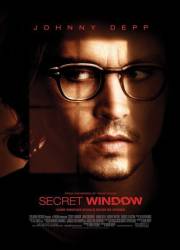
Question: At the end of the credits, we hear Johnny Depp sing "mama's little baby loves shortnin' bread." Is there any reason for this, or a tie-in to the movie I missed?
Chosen answer: An additional reference to the full dominant personality takeover of Shooter, everything gravitates South Mississippi.
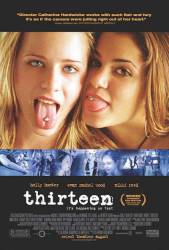
Question: I read that Evan Rachel Wood's character, Tracy, is supposed to be Nikki Reed at the age when she was having the experiences that Tracy went through. Was the character Evie based on a girl that Nikki knew in real life?
Answer: Evie was based off several people in Nikki Reed's life.
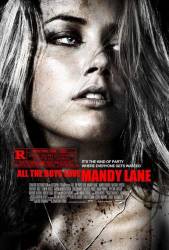
Question: ***SPOILER WARNING*** I don't understanding the ending to this film. What was Mandy's reason for killing people? Is this a flawed character motivation, or did I miss something?
Answer: The reason for Mandy and Emmett killing off the characters is pretty much left open for interpretation, but it seems the reason they killed them was because before Mandy became "hot over the summer" (as Dylan says at the beginning), Emmett and Mandy were treated like outcasts, and after Dylan's death, Emmett probably took a lot of the blame. It's possible that Emmett and Mandy were tired of how the popular crowd had treated them before. At the end, they made a pact to kill themselves. But after finding out that Emmett is just like the others, Mandy backs out and decides not to, but Emmett doesn't take it very well and decides to kill her too. Mandy fights him off, and she saves Garth, who seems to be the only one at the ranch who saw her as a human being and treated her with respect. So any of these reasons may have been motivation (although their actions are extreme), but overall there seems to be no obvious reason.
Answer: It's likely that Mandy developed a taste for murder subsequent to the Dylan incident, in which she evidently was more complicit than would seem at first glance.
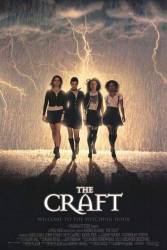
Question: What is the whole conversation in the first French class between Chris' friend, the teacher and Sarah?
Answer: Translation on the board: "if you would have done your homework, you would understand" Teacher: "I hope you had a good weekend" " (Calls to the students name) Your weekend went good?" Student: "Very good" Teacher: "What did you do during the weekend? Did you go to the beach, or did you find a elegant woman?" "Search for a woman?" Student: "oh did you mean did I get laid" (now you see why he says that) Teacher: "In french, in french! (says students name) " Student: "a lot of... a lot of lay" Girl (sorry I forgot her name): "What a idiot, moron" Teacher: "Well, our new student m'am your french is very good!" (Conversation goes on in English) Teacher: (says what the board says) "if you would have done your homework, you would understand" By the way what they're learning in this French class is L'imparfait tense.
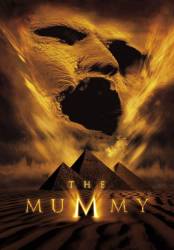
Question: Do the symbols / markings on Ardeth Bay's face mean anything?
Chosen answer: The tattoos on his forehead are the Egyptian Hieroglyphs that spell "Underworld", and the ones on his cheeks are the Egyptian Hieroglyphs for the word "truth." All Medjai males get these tattoos as part of the coming-of-age rite, when they turn sixteen, of which the most important is the tattoo on their right wrist (which Rick O'Connell also has) that marks them as "warriors for God." Other tattoos specific to Medjai males are on their arms, forearms, hands, pectorals, shoulder blades and beneath the navel - the tattoos on the nose and chin are no longer used, since the time of Seti I. Medjai females only get the wrist tattoo when they come of age, but are not marked with any of the other symbols that are particular to men. Fun fact: If the Medjai - male and female alike - shows any sign of pain or cries during the tattooing process, it is considered that they have brought shame to their family.
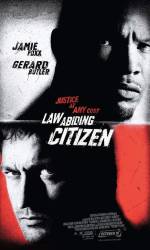
Question: I never really understood what the motive was when Clyde murdered his cellmate. Why did he do it? What did this act have to do with the plot of this movie?
Answer: To make sure he was placed in solitary confinement. The warehouse that he owned and operated out of that was next to the prison also had a tunnel connected to every cell in the solitary wing. Clyde needed to be in one of the solitary cells so he could leave the prison whenever he needed to unnoticed, which also served to make it look like he had an accomplice on the outside.
When Nick is talking to a spook later in the movie, he is quoted as telling Nick: "That cell-mate that he killed, you think that was random? No. That's a pawn being moved off the board. Anyone who had anything to do with that case, he's gonna be coming after you." Just as all deaths played roles in Clydes game, as the audience we are led to believe this inmate played a role, but were never given any resolution as to what significance it was. Not a big deal in grand scheme of things, but unexplained.
I don't know if you just didn't read the answer thoroughly or if you didn't pay close attention to the movie, but Clyde killing his cellmate was far from being unexplained. He can't leave the prison if he's in a regular cell with the general population, so he kills the cellmate in order to get placed in the solitary wing, because every solitary cell is connected to the tunnel in his warehouse that is next to the prison, which allows him to leave whenever he needs to.
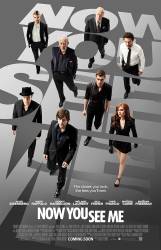
Chosen answer: It was shot with a digital camera. IMDB is a great place to answer questions like this. Go to *Technical Specifications* in the *Other Info* section of the menu on the left hand side of the screen. In an interview in American Cinematographer, Michael Mann said that as far as he was aware, this was one of the first movies to attempt to make a "look" out of digital video rather than trying to make Digital Video look like film. This approach meant the movie could be shot in the low-light scenes of urban desolation Mann wanted - because Digital reacts much better to low light than film. The approximately 20% of the picture that was shot on film was mostly, according to Mann, the portion set in the "Fever" nightclub - because this is the scene with the brightest lighting states, a condition in which Digital Video does not perform as well.
J I Cohen